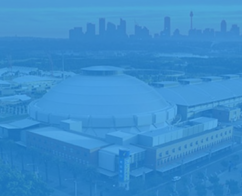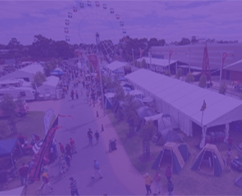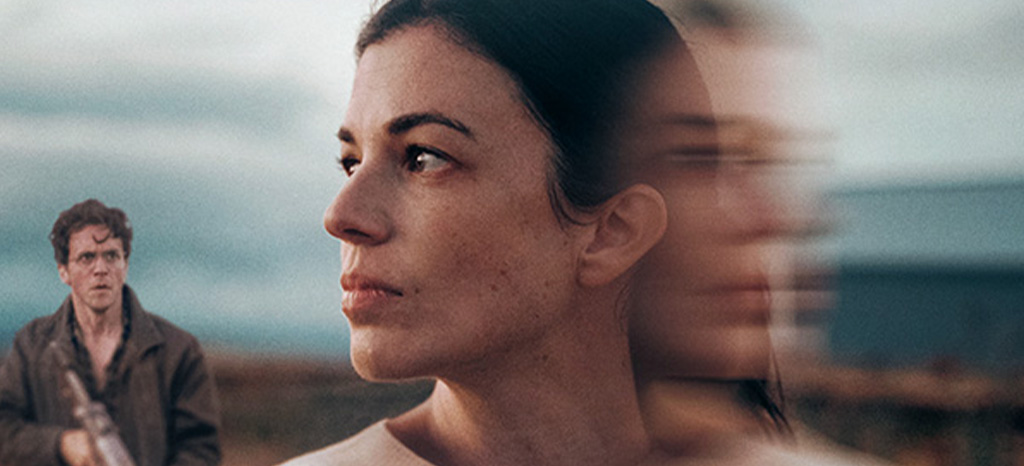
Sydney
June 21-22, 2025
Sydney Showground Olympic Park

Layla (Talia Zucker) lives on a remote cattle property with her husband, Jack (Ashley Zukerman), who has developed a new process for breeding livestock. But the farm is struggling and the isolated existence is not the life Layla dreamed of, especially when a number of unsettling occurrences take place on the property. As Layla starts to question her life with Jack, she discovers that there is a disturbing presence with them on the farm.
Aussie film In Vitro challenges audiences and blurs the lines between genres. To celebrate its release, Talia Zucker (Writer, Actor) and Will Howarth (Writer, Director, Actor) stopped by Melbnova to talk about their latest project, what’s next and more.
Here are some highlights from the panel!
Will: The trailer doesn’t give too much away, so we should probably share a little bit more. There’s a couple of very big spoilers in this film, that we don’t necessarily want to give away, but what we will say is, basically the film is set somewhere in the future where the natural world is breaking down, you can’t raise animals on the pasture anymore, so Jack, who is played by Ashley Zukerman, who we’ve all just seen in Apple Cider Vinegar, has come up with a way of breeding animals in vats, so that these ready-made animals are grown in two weeks and shipped off to market. So, we’re set in a time of future farming where the world is breaking down, but Layla is unaware of a lot of other things going on at the property, and some underlying things about her life there that she’s not aware of.
Talia: Ash has been a friend for a really long time and we were so focused on the script for so long and we hadn’t shared it with anyone, but always had him in the back of our minds, so when it came time to share it, we were really excited to reach out to him. Fortunately, he responded really well and he had to come home to Australia to do something and the timing just worked really well and he was very excited and open to work with us on it.
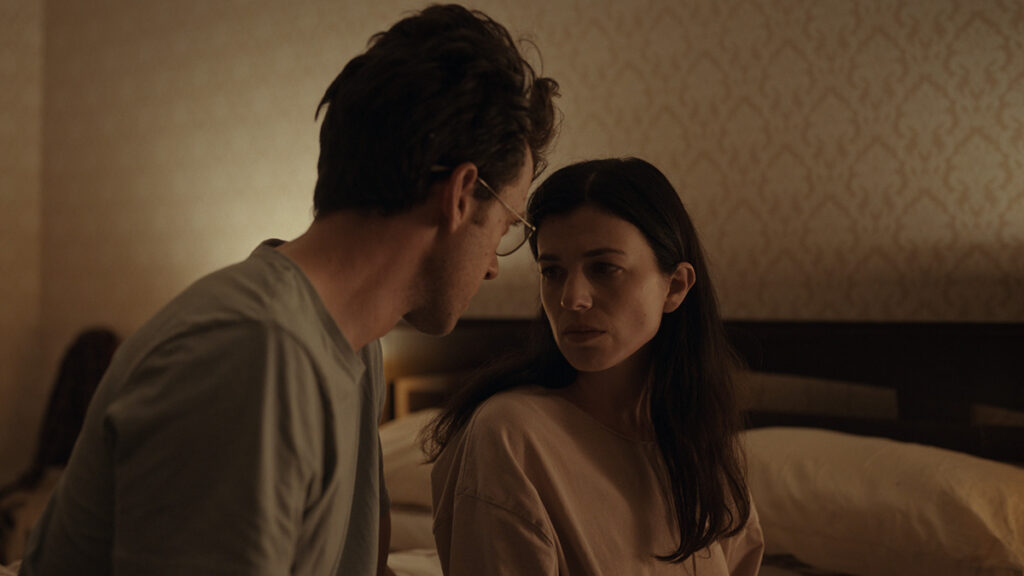 LESS IS MORE
LESS IS MOREWill: He had an interesting approach to it. Underneath what’s going on in the film is a very unhealthy, toxic relationship, where there’s hidden coercive control going on and hidden violence. So, in approaching Jack, Ash had this great idea of trying to make him feel almost as normal as possible… I thought that was a really terrifying and interesting thing that he brought to this role.
Talia: The original idea was something very small and it really just grew from there. We also worked with another director on this named Tom McKeith. Will and I had been working on the idea for a couple of months and then we shared the outline with Tom and he bought some ideas to the table. We actually did this thought experiment where we flipped the perspective; it was originally told from the male point of view and we flipped it to the female point of view, and it inherently had this thriller kind of feel. Once that was there, we couldn’t ignore it, we really liked that part of it.
Will: We went to a cattle cloning property in Victoria – this was over six years ago or something – because we wanted to see how legitimate it was. Obviously, we’ve pushed the idea to a 10. We met this chap in Victoria who kind of showed us his cattle cloning facility and it basically just looked like a farm with a bit of a lab next to it… it was about getting the prime meat right. And also, I guess looking to the future and alternatives to conventionally raised animals. We found that creepily normal when we met him, because it just felt like another farm. So, when we were designing how our film was going to look, we didn’t want it to look like we were on a spaceship and there was white plastic and chrome everything, we wanted it to look like it had a bit of a retro feel; we wanted to push against it feeling too far into the future, because it is strangely present.
Will: We worked with production designer Alexi Wilson. She’s known for making props for films like Dune and Thor, and she does the kind of rundown future look well. What we did as a fundamental approach to the technology was look backwards; we’re in a future where the world is breaking down, to us, you can justify that people are repurposing stuff, so there’s old computers and bits and pieces thrown together and the cars were interesting. We were like, ‘What do the vehicles look like in this world?’ We didn’t want hover utes. Alexi suggested, ‘What if they look like old rundown utes but we just make everything EV?’ So she had a really smart way of approaching it, which was to go backwards rather than forwards.
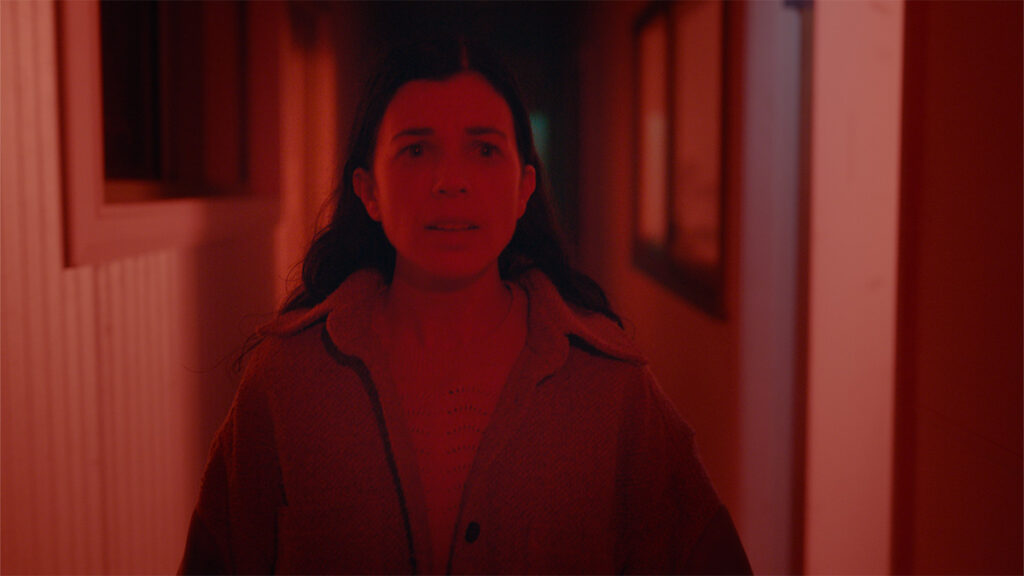 BALANCING ACT
BALANCING ACTWill: I think we were excited to do a bit of a genre mash-up… I think that thriller kind of pokes through the most, but ultimately, it is a sci-fi idea, and there are definitely horror elements to the film, and we want the audience to feel a sense of tension and uneasy and perhaps a little scared. But we were excited to do a bit of a blend and it kind of gives you the chance to try do something fresh, because you can draw on anything you want. We’re working with an awesome distributor in Madman and had the conversation, ‘Well, how do we present this film to audiences?’ And we decided to release this film as a thriller. I think that’s the right idea, because if you’re signing up to see a horror horror, you’re going to be disappointed; if you’re going out to see if a big sci-fi, that’s not going to be in line with your expectations either, but if you’re going out to see a thriller, I think it really delivers on that.
Talia: Lake Mungo was some time ago. It’s such a lovely film, and it’s so cool to see its life continue and continue. Lake Mungo was 2008, so I was much more of a new actor then and still at school, I think, and very much perusing a straight acting path at that point. I went to the US and started to get more into screenwriting and filmmaking and expanded my toolkit a little bit. I’m so excited how much people continue to revisit Lake Mungo and discover it for the first time, because it’s such a wonderful Australian film that perhaps didn’t get the big recognition when it was first released. It’s a really interesting movie. [The resurgence] has timed up well [with In Vitro] because we played at MIFF last year and Lake Mungo had a screening there as well, which was really cool, and it was a packed cinema.
Will: It’s obviously a very hard process to go through, so you often ask yourself, ‘Why am I doing this?’ I particularly enjoy the shoot because it’s always thrilling, I enjoy the writing process as well. It can get pretty hairy in the edit and you can do a lot of soul searching. At the end, when you’re doing the sound mixing and things like that and you’re seeing everything come together, that’s really lovely; that’s quite a satisfying part.
Talia: There’s so many layers to making a film; there’s so many steps along the way that enhance the performances and scenes and the writing, so it’s great to witness it all come together, because as an actor, you’re just playing that small piece in the whole puzzle.
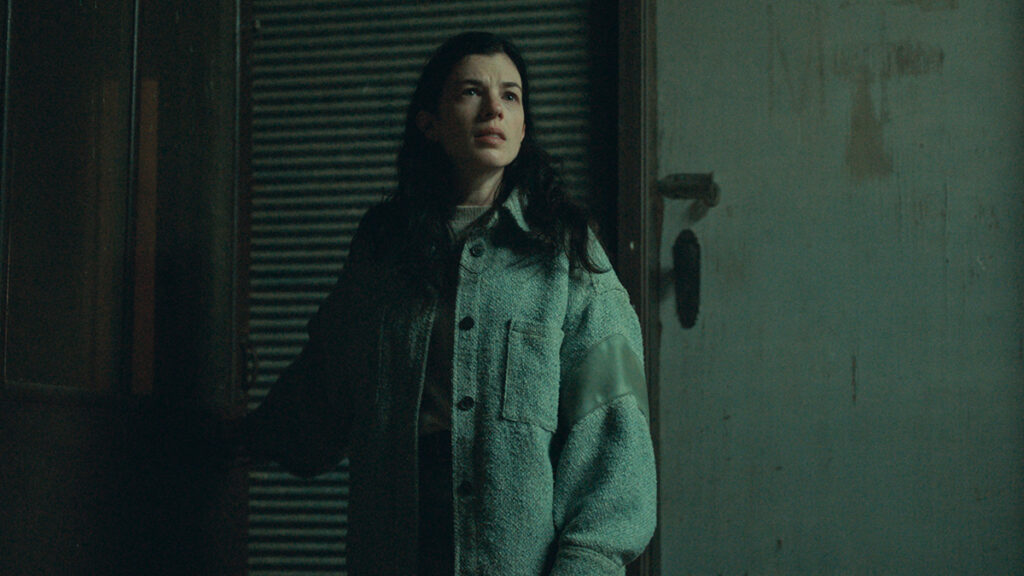 AUDIENCE ANALYSIS
AUDIENCE ANALYSISWill: I want people to be surprised by the twists and turns of the film and challenged by the ending, which I won’t talk about specifically, but I hope that there’s a lot for the audience to chew on at the end; I hope it’s unexpected and I hope it’s also kind of challenging.
Talia: We want it to be a good viewing experience and I hope people think, ‘That’s a really good and different Australian film. I’ve never seen something like this before.’”
Will: The film played at the Austin Film Festival and we won their [Dark Matters] Jury Award, which was awarded by Roy Lee, who is the producer behind IT and The Ring, and The Grudge and he’s a huge horror producer in the US. As result of winning that award, we’re going to be working with Roy for the next six months on some new ideas we have.
For more information on In Vitro, click here.
